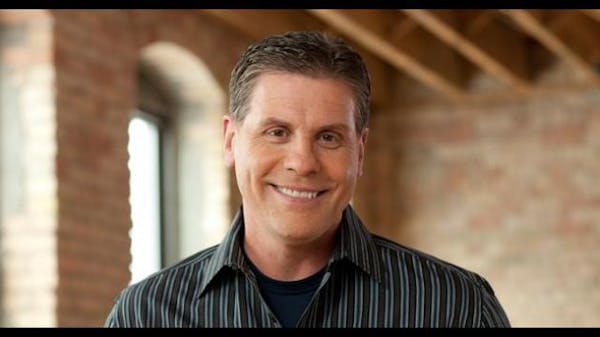CANCER DONATIONS
Choosing the best option for charity
I didn't understand the point of the article on cancer fundraisers ("Cancer fundraisers target high school sporting events," Dec. 31). We live in an age of celebrity worship, and most of the celebrities splashed across the media are not great role models.
In contrast, Randy Shaver has chosen to use his local celebrity as news anchor and sports reporter to raise money for cancer research. His wife serves as vice president and treasurer for a mere $10,400 a year. Together, they have raised more than $4 million.
In the charitable fundraising world, these are laudable, enviable results on a shoestring budget. To help accomplish their goals, the Shaver Fund has enlisted the aid of high school athletes. This has been a grass-roots effort that teaches young athletes to think beyond themselves and offer their brains and brawn for a good cause.
So what's the problem? It appears that many higher-profile charities and their much-higher-paid executives are jealous. The story should have been about the amount of good done by the Shaver family, and not about complaints from larger, less effective charities.
MAUREEN MULVANEY, ST. LOUIS PARK
• • •
I am a cancer survivor and, God willing, will remain cancer-free thanks to my medical team at the Mayo Clinic. I no longer give to specific cancer groups, but instead donate to cancer research at Mayo. The average person would be astounded at the long list of cancers people can acquire in the course of their lives.
Most of us are unaware of how researching cures for one cancer can have an effect on the research of another cancer. Many researchers share these findings as part of an integrated approach to eradicating cancers. I never want this to become a situation where the people who have the most clout get the lion's share of cancer donations for "their" cancer.
Think about donating to a research hospital directly.
SHEREE CORNELIUS, COON RAPIDS
* * *
MILITARY BUDGET
Penny, Horner failed to mention the obvious
In their latest commentary, Tim Penny and Tom Horner reviewed the successes and failures of various economic policies over past decades and recommended an approach for President Obama ("Now, Obama will cement his economic legacy," Dec. 30). But they didn't mention the Pentagon and how much of our nation's annual budget goes there.
The Navy has said it does not need another aircraft carrier, and the Air Force says the fighter jet in development is already obsolete. Why are these things still in the budget? It's time to reset priorities and strive for a reasonable balance in our nation's needs.
JUDITH PRYOR, ST. PAUL
* * *
FISCAL CLIFF
Remember, you voted for these lawmakers
The approval rating of the 112th Congress was abysmal. It's no wonder, given the New Year's weekend drama over the fiscal cliff. But Americans would be shortsighted to simply blame Congress for this fiasco. They must also bear responsibility ("Don't blame them. Blame yourselves," Jan. 2).
Voters re-elected the intransigent lawmakers and are reaping what they sowed. Far too many people, especially younger voters, have no memory of what politicians championed over the past years.
As a consequence, too many people vote for candidates based on name recognition. Our elected officials know this, which is one reason we don't see the needed change in Washington. The country is being held hostage by a dysfunctional Congress.
Too many lawmakers are more concerned about doing what's necessary for their re-elections than about doing what's best for the country. Too bad for us.
JAMES HAUGEN, LAKEVILLE
* * *
GUN VIOLENCE
FBI agent's view added to the conversation
Retired FBI agent John Egelhof's commentary on lessons learned from the Red Lake school shooting was educational and well-worth the space given to it ("I've felt the pain. I get the arguments," Dec. 30).
He stated: "Law enforcement must start treating improper firearms possession with the same seriousness it now applies to drunken driving."
A key component of this well-accepted legal framework includes mandatory liability insurance. If you are going to drive or own a car that ever leaves your own driveway, you must have insurance that will cover the possibility that someone may get hurt. Insurance companies, as private enterprises, are very good at assessing risk and assigning a price for covering that risk.
As part of the "well-regulated militia" assumed by the Second Amendment, let's require liability insurance for anyone who wants to have a gun or buy ammunition. As with driving, anyone found carrying a firearm without insurance can face the consequences.
DAVE PORTER, MINNEAPOLIS
• • •
Thank you for publishing Egelhof's thought-provoking commentary on the furor over gun control. It was the best piece I've ever read on the issue. He was able to present both sides, given his experience as an FBI agent who responded to a school shooting, but also as a member of the National Rifle Association. I really hope this excellent, unbiased piece of writing is read far and wide.
PHYLLIS MCQUAID, ST. LOUIS PARK
* * *
SUPERSTORM SANDY
Don't make country pay for those in flood plains
Those of us who are high and dry and have adequate insurance for natural hazards are asking why we should be taxed $60 billion so that Hurricane Sandy victims can rebuild on flood plains. If we are going to spend this money, why not attach some revenue to the Sandy relief bill? A 20-cent federal gasoline tax for three years would cover the cost.
ROLF WESTGARD, ST. PAUL
The 'Civility Caucus'

Sports betting push at Legislature resorts to punitive leverage


